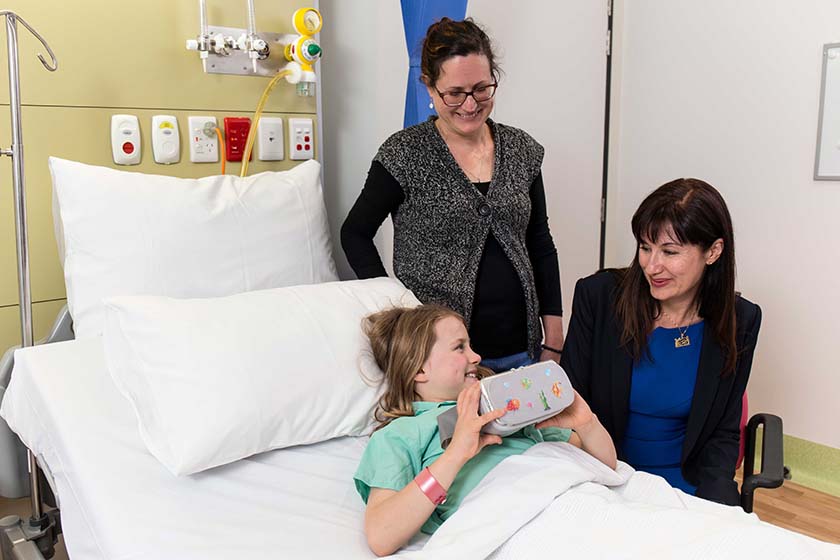WA first: virtual reality goggles piloted to help children in hospital
28 Sep 2017

27 September 2017
The virtual reality goggles take children on an underwater adventure while they undergo short procedures such as blood tests - helping to reduce their pain and distress.
St John of God Health Care Group Director of Information Services Ms Jenny Levy said the latest technology, piloted by St John of God Health Care in September for children aged three to 13, was tailoring health care to meet the needs of the next generation.
“This virtual reality pilot program is a first in WA and highlights how we are continuing to transform our hospitals by incorporating technology to enhance the patient experience and meet the demands of future generations,” she said.
“Having seen the anxiety needle-based procedures induced in my daughter when she was a child and she still experiences as an adult, I could immediately see the value for patients.
“Children and teenagers are surrounded by technology in their everyday lives. New technologies, such as these virtual reality goggles, go towards helping them feel more comfortable in our hospitals.”
St John of God Health Care Executive Director WA Hospitals Mr John Fogarty said the goggles were a great example of how technology can enhance the patient experience.
“This technology not only helps children and their parents but could prove to help reduce the time clinicians need to complete certain procedures. This may have a flow on effect to all of our patients who can be seen and treated without delay,” Mr Fogarty said.
Mr Fogarty said planning was underway to extend the use of the virtual reality goggles into other clinical areas and at other St John of God Health Care facilities.
“This is a part of St John of God Health Care’s continuing investment in technology to enhance patient experience in our hospitals,” he said.
Ms Levy said initial feedback from the pilot at St John of God Midland Public and Private Hospitals’ Emergency Department, Children’s Ward and Pathology Collection Centre was encouraging.
“The impact of the goggles has been immediate. Children who have used the goggles as a part of the pilot are visibly more relaxed and their parents have also reported a reduction in their anxiety as they know their child is not distressed.”
Patient’s experience the underwater adventure through the virtual reality goggles with the patient’s head guiding what they see, while their clinician explains what to expect before and during the procedure.
“The experience is designed to help children through the procedure by providing prompts to breathe deeply or to notice when a fish comes to nibble, at the same time as they might notice a needle pricking their arm,” Ms Levy said.
“As parents can also hear these prompts, we have found they also take deeper breaths and are more relaxed.”
